#justifying evil deeds
Text
“Listen, now. On the other hand, you have fresh, young forces that are being wasted for lack of support, and that by the thousands, and that everywhere!
|
A hundred, a thousand good deeds and undertakings that could be arranged and set going by the money that old woman has doomed to the monastery!
|
Hundreds, maybe thousands of lives put right; dozens of families saved from destitution, from decay, from ruin, from depravity, from the venereal hospitals—all on her money.
|
Kill her and take her money, so that afterwards with its help you can devote yourself to the service of all mankind and the common cause: what do you think, wouldn’t thousands of good deeds make up for one tiny little crime? For one life, thousands of lives saved from decay and corruption. One death for hundreds of lives—it’s simple arithmetic!
|
And what does the life of this stupid, consumptive, and wicked old crone mean in the general balance?
|
No more than the life of a louse, a cockroach, and not even that much, because the old crone is harmful.
|
She’s eating up someone else’s life: the other day she got so angry that she bit Lizaveta’s finger; they almost had to cut it off!”
|
Dostoevsky, Fyodor/Crime and Punishment: A Novel in Six Parts with Epilogue/Vintage Classics/p. 68
#the truth#Fyodor Dostoevsky#russian literature#psychology#psychology before a kill#psychology during a kill#psychology after the kill#Justifying evil deeds#trade off is one evil deed for a 1000 good deeds#the failure of act utilitarianism as purely used in ethical evaluations#fyodor dostoevsky eventually has the main character give up and turn himself in because he could not move on from killing her#The failure of justifying murder of innocent blood with 1000 good deeds#Jesus dying on the cross and his resurrection show a powerful idea of redemption#murder is pure judgement where redemption does not exist because you can't redeem yourself because they are already dead#their are no justifications for murder#the danger of justification as a means to fulfill that of our confirmation biases#rule utilitarianism would have saved the main character from justifying the killing but not act utilitarianism#the flaws of redistribution and equality instead of equal opportunity#if you can justify degrading someone's existence you can just as easily justify strengthening someone's existence#the flaw in moral relativist thinking#moral objectivism supports humanity as a whole as equally valuable and brings room for reason unlike moral relativism
2 notes
·
View notes
Text
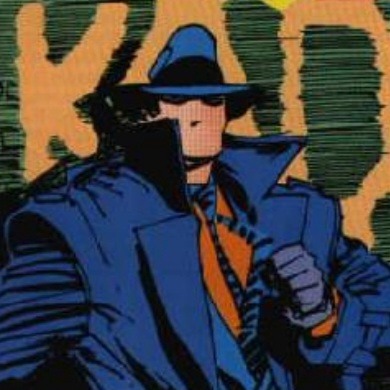
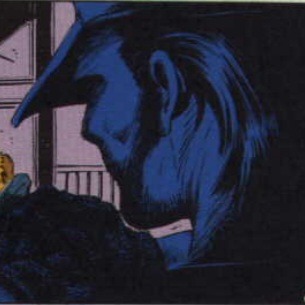
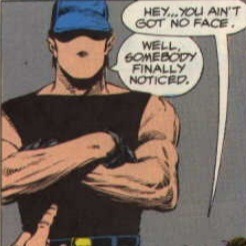
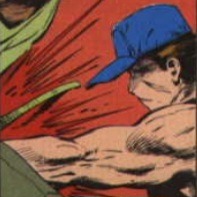
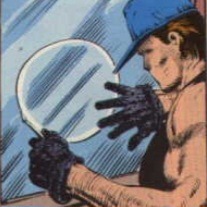
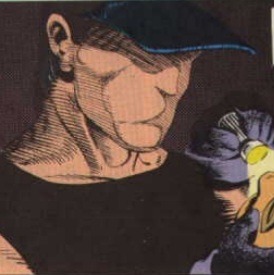
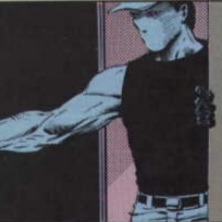
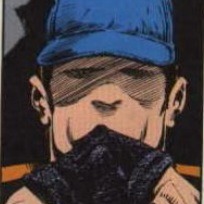
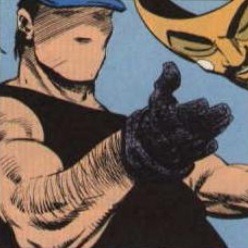
Questionable Images 1/2 - The Question #8 (1987)
#book club#the question#vic sage#dc comics#comics#questionable images#another one of my favorite issues#here you can see vic talk about second chances and get fucked up on drugs#also it contains at least two jokes about vic having no face. higher than there have been so far!#but seriously this issue is really fantastix#it shows you what someone who fights fire like fire is doing in the town of hub city#as well as discussing how 'innocence' can be subjective...#dr spaulding is one of my favorite one off antagonists. hes not cartoonishly evil or anything like a lot of the others.#you can see his motivations and you can see how his morals somehow justify this (while being hypocritical)#and yet you are able to look at it and decide how you feel about his actions & decide what it means when someone is 'innocent'#it forces you to ask yourself how much a person can do before they're irreparably guilty. and whether theres a balance to it.#100 good deeds might outweigh 100 bad deeds. or they don't. and every moment decides whether you're 'innocent' or not on its own.#and at the end you have to ask yourself whether spaulding deserved that. DID the punishment fit the crime? why him and not vic?#it brings up moral issues you maybe didn't think about before.#very very good issue... one i often think about.#WHY WONT TUMBLR LET ME MOVE THESE PICTURES AROUND IM GOING TO EXPLODE#no one is guilty except whoever at tumblr made this impossible
112 notes
·
View notes
Text
I just think loving Emet-Selch AND recognizing that he was an irredeemable and miserable evil man who committed countless crimes at the same time is possible.
#don't reblog#my unpopular ffxiv opinion is not liking when people act like emet-selch did nothing wrong#and his reasons can justify his deeds#i prommy there is nothing wrong loving a problematic evil character#i love grandpa warcrimes but lets not lie to ourselves by saying he was right or innocent
39 notes
·
View notes
Text


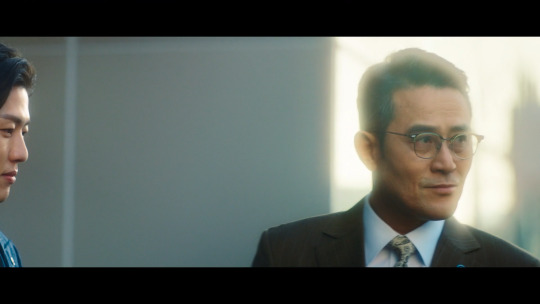
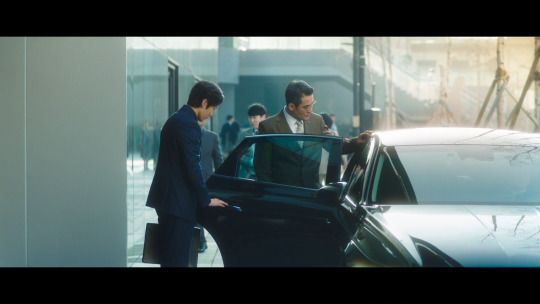
#look at them smiling at the thought of money#their characters are supposed to be hated but I know just how they are going to justify their evil deeds#mbc numbers#kdrama
2 notes
·
View notes
Text
Why Villains Are Great
I can sum that up with one beautiful word… Versatility
For you see…

A villain can either be a someone who willingly threw away their humanity to become something monstrous…
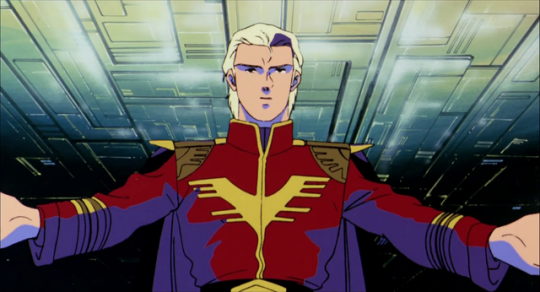
Or they’re someone who retains their parts of their humanity, while still committing the most heinous of deeds.

They could be a demon trying to force their twisted sense of order upon everyone from atop an ivory tower…
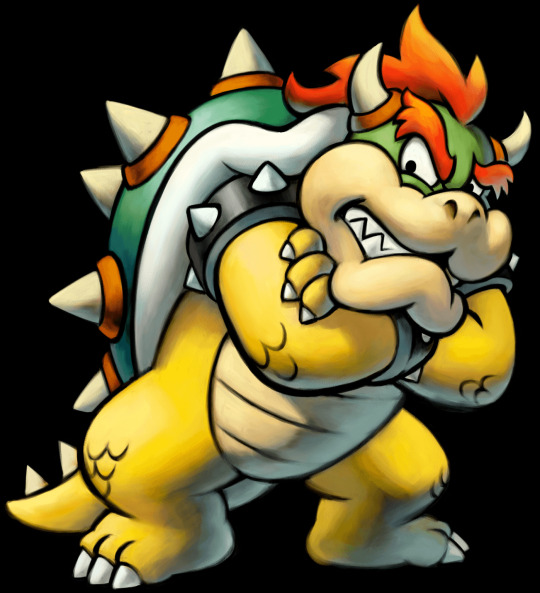
Or just a plain bully with a soft spot that shows itself more often as time flies.

They can have the purest of intentions and cause mass suffering at the same time…

Or they are a self-righteous narcissist who sees their horrendous actions as completely justified and in the right.

Maybe they’re an ethereal, destructive, carless, and otherworldly entity…

Or a truly tragic monster.

It doesn’t matter if they’re a man…

Or a beast…

A villain can be anything or anyone, for evil has many shapes and many faces.
#Villains#ganondorf#calamity ganon#ganon#sephiroth#Hades#hades kid icarus#ghetsis#edelgard von hresvelg#bowser#sauron#char aznable#dio brando#the legend of zelda#legend of zelda#final fantasy#ff7#kid icarus uprising#kid icarus#pokemon#fire emblem#lord of the rings#tolkien#mobile suit gundam#gundam#jojo's bizarre adventure#jjba#(one behind the mask) mun izunia#ramblings
332 notes
·
View notes
Text
narratively svsss implies that binghe's evil actions such as burning down a whole sect, torture, murder etc is all justifiable because he suffered abuse under shen jiu. because as soon as that abuse is taken away, binghe becomes a super good person who can't do wrong.
his evil deeds are blamed on the abuse, not him personally even though he chose to do all that. shen yuan even supports all his violence, including brutally excessive torture.
we only get shen yuan's perspective. we are told he doesn't like shallow one dimensional tropes but why does he love binghe's character? binghe's original character is the definition of shallow bad tropes. we don't actually get to judge how abusive shen jiu is was. we are simply told that he deserved it.
the fandom accepts this but cannot apply it retroactively to other characters, namely shen jiu. if binghe was only evil because of abuse, then shen jiu wasn't born evil either. if you can justify original binghe's actions as the result of abuse and a thirst for revenge, then you can understand shen jiu's actions in that same vein.
if shen jiu got a better life, he wouldn't have been a villian. if someone just treated him better at the right time, he would have turned out fine.
119 notes
·
View notes
Text
to let a good deed go unpunished
NOTE: for the anime-only's, there may be a few spoilers about tecchou below, so please keep that in mind. i and Hopefully this isn't too ooc lol :< still waiting for more tecchou content ^^ i'm spelling his name as tecchou here, instead of tetchō :>
REQUEST: general y! tecchou headcanons from @shumidehiro
CW: yandere character, manipulation, unhealthy relationships, obsession, jealousy, stalking

- an encounter with tecchou is an opportunity that is hard to come by outside of his work, since he's more devoted to his duty of upholding justice more than anything
- that's not to say it's impossible. besides, as long as he recognizes you share the same values as him, you'd easily make an impression on him, even if you didn't plan to do so
- due to tecchou's nature, he easily focuses on things that pique his curiosity or admiration. he can spend hours watching you display your sense of justice or leadership (much like the ants he watched without moving)
- while tecchou can be either a platonic or romantic yandere, his overall intentions are the same. he wants to protect you from the cruel, imbalanced world he's used to. he knows your beliefs can change in a moment once you realize the true nature of people, and doesn't want that to happen
- tecchou doesn't like lying to you or deceiving you. he's an honest person by nature and hates using force or mind games to get you to do something. since he believes sincere discussion is the best way to ease tensions, arguments with tecchou never get out of hand
- most of the time he's not able to pick up on what you're feeling, nor does he stop to consider how you're affected as a consequence of his actions. in fact, he's surprised to know that you actually feel more paranoid than safe because of his constant surveillance
- because unfortunately, as you'll quickly realize, tecchou genuinely believes his actions are helping you. you may be upset at his rigid rules but he only wants to protect you
- he thinks you don't understand that his actions come from a place of good intentions, so while he's ready to hear out your concerns, it's impossible to get him to change his ways when they're so rooted in his personal values, and so he'll keep justifying his own actions to you.
- tecchou feels responsible for protecting you from the evil intent of anyone else. due to this, he indirectly restricts your social circle so that all your friends are all either in the hunting dogs or involved with them in some way
- tecchou doesn't ever toy with you or harm you. however, that's not to say he won't hurt others...
- he revels in his ability to make any potential target tremble in fear from just his glare. and even if they don't back down from that, he has an array of methods to silence anyone who dares come in his way
- while tecchou doesn't consider himself violent, he's willing to dirty his hands to protect you. but at first, he doesn't actually consider hiding it from you
- it's likely a hunting dog member (jouno) would be the one to advise him about keeping it a secret. jouno's the one who explains to him that even if he was protecting you from who he deemed as 'evildoers', you'd probably not appreciate the sentiment
- in fact, you'd likely be horrified at the thought that tecchou would be so cruel as to harm someone who only wanted to talk to you. you could only justify tecchou's actions if you believed he was only truly apprehending criminals, which is ultimately why he makes sure you never catch him hurting someone else
- he doesn't want you to lose your trust in him, which is why kidnapping and imprisonment are also not in tecchou's plans; not unless he absolutely has no other choice. he fights off the evil from your shadow, and ensures that you are none the wiser
(softer hcs below that i felt didnt match with the rest)
- tecchou's not used to physical affection, but will quickly adapt to your preference. since he's physically a lot stronger than a regular person due to his modifications, it'll take him a while to figure out if he's holding you too tight or if he's hurting you
- he'll be happy if you want to join him while he's working out. whether you want to help out, watch or try working out alongside him, he'll appreciate the company
#yandere bsd#yandere bungo stray dogs x reader#yandere bsd x reader#yandere bungo stray dogs#yandere bungou stray dogs#yandere tecchou#yandere tetcho#yandere suehiro tecchou#yandere tecchou suehiro#tecchou suehiro#tecchou x reader#bsd tecchou#suehiro tecchou#tecchou hc#bsd tetchou#tetchou suehiro#tbh i like suegiku a lot so i prefer tecchou x jouno x reader more than just tecchou x reader#but also the hunting dogs are so angst coded with their monthly modification thing and their jobs that i just feel sad writing for them#bsd 🐟#tecchou 🐟#req 🐟#hc 🐟#its hard to write for him cos we dont really know much :/#yes title is a play on That One Line#i absolutely adore it
381 notes
·
View notes
Text
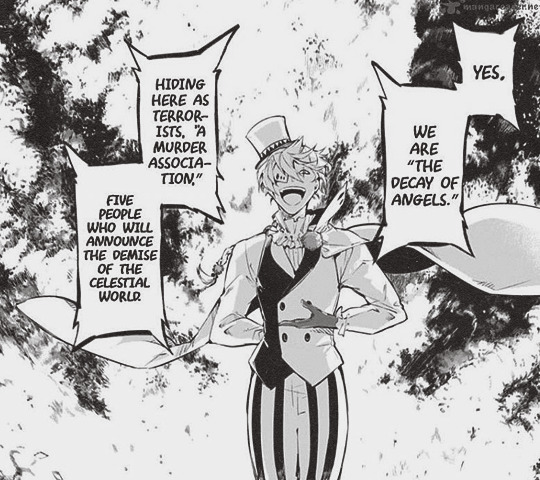
BUNGO STRAY DOGS VS LITERATURE: THE DECAY OF ANGELS
This is going to be the first in a long (long) running series where the goal is to read every single book mentioned by name in Bungo Stray Dogs, and try to connect the themes of that book to the characters who are referencing that book. In light of the recent arc I am starting out with "The Decay of Angels" the villainous organization consisting of Bram Stoker, Nikolai Goggol, Fyodor Dostoevsky, Ochi Fukuchi and Sigma.
The name Decay of Angels comes from Yukio Mishima's novel, the Decay of the Angel. The fourth and last book in his Sea of Fertility tetraology which is widely considered to be his masterpiece. I read all four books, so underneath the cut I'll elaborate on the connections between Yukio Mishima's work and Bungo Stray Dogs.
1. The Decay of the Angel
The Sea of Fertility is a tetralogy of novels written by Japanese AUuhor Yukio Mishima. The four novels are Spring Snow, Runaway Horses, the Temple of Dawn, and the Decay of Angel. The main timeline of the story stretches from 1912 to 1975, the main character of all four books is Shigekuni Honda a law student in Spring Snow, who's best friend Kiyoaki Matsugae dies at the age of twenty at the end of the first book. In each sequel, Shigekuni meet what he believes are the reincarnations of Kiyoaki, who are condemned by karma to die at an early age. Every time he attempts to save them from their deaths he fails.
The strongest connection between the Sea of Fertility itself, and the "Decay of Angels" organization depicted in Bungo Stray dogs is that both are heavily inspired by Buddhist ideology. The Sea of Fertility is an exploration of the concepts of both "reincarnation" and "karma" while the ideology of the decay of angels is to enact Karma in the real world for the past sins of the governing body.
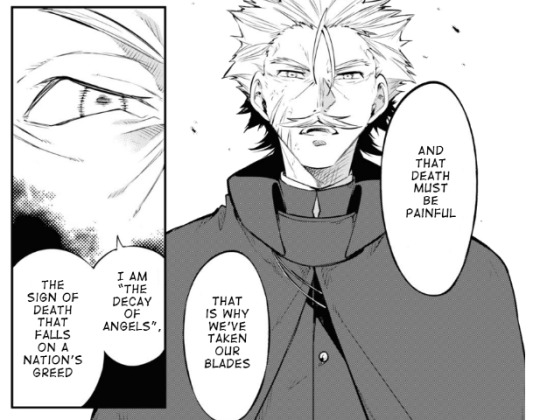
The brihadarankyaka Upanishad states: Indeed the person performing a good deed will become benevolent, and one performing a bad deed will bcome evil; one becomes pure by pure acts, and black by evil acts. Therefore it is said: a human being is composed of karma, or "desire" by following karma one creates will, by following will one creates karma, and through karma, samsara comes into existence."
The Temple of Dawn
Both the ideology of the Decay of Angels, and Yukio Mishima's work make constant references to budhism like this. Budhists conceive of the world as a suffering-laden sycle of life, death and rebirth without beginning or end known as Samsara. In essence in budhism, beings are driven from life to life in this system by karma which is activated by good or ill actions committed in this life as well as previous lives. Fukuchi's goal is more or less to make Karma real and enact it with his hand, to punish governing bodies for their past sins.
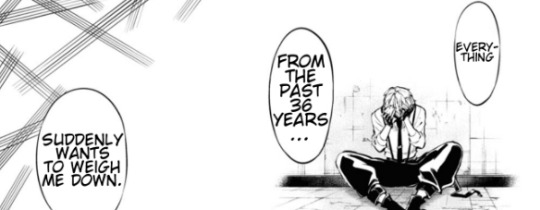
His ideals are also heavily budhist in nature, more or less budhists believe suffering in inherent to life. The goal of budhism is actually to stop being reborn and escape the cycle of death and rebirth by eventually purifying yourself of earthly desires, etc. etc. Fukuchi's goals allign with these ideas. Just like reality and earthly desires inherently cause suffering. As long as governments exists, they will continue to create war. The only way forward is to create a death and rebirth. Governments have to die, so society as a whole can be reborn into a higher, more enlightened state. He is essentially twisting lofty budhist ideals to justify his extreme political actions.

Bungo Stray dogs also borrows some symbolism from the fourth book, the Decay of the Angel. In budhist scripture Devas are mortal angels. A topic the fourth book discusses at length.
Here is the account in the twenty fourth fascicle of the Ekottara-augama: "There are thirty-three angels and one arch angel, and the signs of death in them are fivefold. Their flowered crowns wither, their robes are soiled, the hollows under their arms are fetid, the body ceases to give off light, it loses awareness of itself."
Decay of the Angel

There are five members of the decay of angels in BSD, Fukuchi, Fyodor, Goggol, Bram, and Sigma, just like the five stages of decay. Just as in budhist belief death comes for everything, even the angels, the stated goal of the organization is to bring death to the members of the world's government. Quite literally in Fukuchi's case, by controlling a vampire army (vampires being symbols of death due to being undead and bloodsuckers themselves).
2. Death and Rebirth
The main premise of the Sea of Fertility is tracking the four reincarnations of one individual. Each successive reincarnation lives a short life and dies for the sake of an ideal.
'Kiyoaki Matsugae was caught by unpredictable love, Isao Iiinuam by destiny, Ying Chan by the flesh. And you? By a baseless sense of being different, perhaps? If destiny is something that takes hold of a person and drags him after, then the other three had desinty. And has anything caught you?'
The Decay of the Angel
The whole organization of Decay of Angels, is seeking a somewhat symbolic death and rebirth of society, but at the same time as individuals four members are seeking to die for the sake of an ideal like the four lifetimes of Kiyoaki.

Gogol's may seem to be the simplest, to commit suicide in order to free himself entirely from god's will. He may be a russian character, but even some of his ideals are budhist. One of the major differences between Budhism and Hinduism as commented on in the books, is that Hinduism believes in the divine whereas in Budhism there are no gods. Not only do they reject gods, but they also reject the idea of a "soul."
"Budhism does not recognize the soul as such. If there is no core substance called soul in beings, there is of course, none in organic matter. Indeed quite like a jellfyfish devoid of bone there is no innate essence in all of creation. . If we assume there is no self, what is the basis of the birth-and-death cycle to start with?... WHen the Threavada Sautranika school evolved the concept of "seed perfurming" was established according to which the effect of a good or bad deed remains in ones consciousness, permeating it as the fragnace of perfume permeates clothes and thus forms character."
Gogol's ideal is similiar to that belief, he rejects both the idea of god, and the idea of his soul, in order to prove that all that exists of the universe is his free will and consciousness. He even goes through a metaphorical death and rebirth in order to reach that ideal, he fakes his own death, and then is revealed to be alive.
There's even a discussion of free will in several of the books, particularly the fourth.
"He should have armed them with the foreknowledge that would keep them from flinging themselves after their destinies, take awaay their wings, keep them from soaring, making them march in step with the crowd. The world does not approve of flying. Wings are dangerous weapons. They invite self-dstruction before they can be used."
Decay of the Angel
If you wanted to parallel him to one of the lifetimes, you could even say he is much like Kiyoaki, someone caught up in an unpredictable love. At one point in the story, as he's dying of sickness he continues to try to visit his lady love every day for the sake of seeing her one last time and considers facing his impending death to be a trial to prove his love. Gogol similiarly puts his closest friend through a life or death trial to see if his feelings spring forth from himself and his own free will, or are brainwashing.

"I'd tell myself in it was because I was insincere. I'd know in my heart that if only I had gotten out of the rickshaw and walked, no matter how weak I felt, then such sincerity - even if she was unaware of it - would have affected her, and she would have seen me. That's it then. There's no reason to have such regrets. I have no other choice but to risk my life, if I want to see her. To me, she's the essence of beauty. ANd it's only that which has brought me so far."
-Spring Snow
The second lifetime lived by Kyoaki is that of Inao who is a far-right extremist in Japan, who wishes to see japan return to its more imperialist ideals. As a whole these novels take place over a time frame that's post the russo-japanese wars, all the way to the lead up into world war two, and then post world war two. There are pretty obvious references to world war two (the island where Fukuchi fought on being a reference to Okinawa, Ahabaraki being a reference to the nuclear bomb). Bungo Stray Dogs also clearly takes place in a post-war society. The motivation of the current villain Fukuchi is the mistreatment of soldiers during that previous war.
Fukuchi resembles Isao, the far right extremist. In the second book there is a long recounting of the history of the Satsuma Rebellion. It was a revolt of disaffected samurai against the new imperial government, nine years into the Meiji Era. In the book it’s mentioned they prayed at a shrine a number of times, and waited to rebel until they believed the god’s themselves approved of their rebellion. The main character of the book Isao wants to enact a similar rebellion against the government to rid Japan of western influence and to make the emperor all powerful again.
The sins I refer to have nothing to do with the law. And the greatest sin is that of a man who, finding himself in a world where the sacred light of His Majesty is obscured, neverthless determines to go on living without doing anything about it. The way to purge this grave sin is to make a fiery offering with one's own hand, even if that itself is a sin, to express one's loyalty in action, and then commit seppuku immediately. With death, all is purified
Runaway Horses
The goal of the main character is to "before the sun... at the top of a cliff at sunrise, while paying reverence to the sun... while looking down upon the sparkling sea, beneath a tall, noble pine... to kill myself..." He is a man who wants to commit a sin he believes will put his country on the right track, and then die for his country. He also believes the only way forward is a military coup (guess what happens in japan in a couple of years). Fukuchi's goal may be the opposite, but he still uses the same methodology. He has seized full and total control of the world's governments acting as an ultimate emperor to achieve his goal. Everyone else is just instruments and puppets to him, he literally changes them into mindless zombies.
"Here was the power of the emperor himself. Only on this drill ground was the hand of the sun working with a mathematical clarity and precision. Only here! The will of the emperor penetrated the sweat, the blood, the very flesh of these young men, piercing their bodies like X-Rays."
Runaway Horses
Fukuchi's goal is essentially to fight imperialism by using tools of imperialism himself. He also invokes the divine when fighting against Akutagawa and Atsushi, saying he carries and enacts the divine will. He is focusing all power on himself, the same way Isao wished for the emperor to have total control and authority of the country once more to purge out western, socialist, and capitalist influence.

He also, just like Nikolai experiences a death and rebirth on the battlefield. Fukuchi was once manipulated like Isao by far-right ideals that joining the military would equate to protecting both his comrades and his countries, only to be eaten up and chewed out by the war-machine and not accomplishing protecting anyone but the governments already in place, creating the current Fukuchi.


Just like the deaths of his comrades were wasted, Isao also experiences a disapopinting suicide which is the exact opposite of what he wanted, and the ideal of dying with honor presented throughout the story. Which clearly illsutrates all the militaristic and far-right ideals Isao believed in through the story, were proven false and nil by the end.
“The sun will not rise for some time,” Isao said to himself, “and I can’t afford to wait. There is no shining disk climbing upwards. There is no noble pine to shelter me. Nor is there a sparkling sea.”
Runaway Horses
The third book features Thai Princess Ying Chan who is said to have been caught by the flesh. This will be the shortest section because the third book is very dark, but basically the third book the Temple of Dawn deals with how the elder generation of japan, preys upon and takes advantage of the youth. Ying Chan because of her youthful body, is molested by two adults who she trusts.
Sigma is someone similiar to Ying Chan, a youth who is born and then continually used by everyone around him in his life. He is the ultimate child taken advantage of by society passed over again and again due to being born from "nothing."

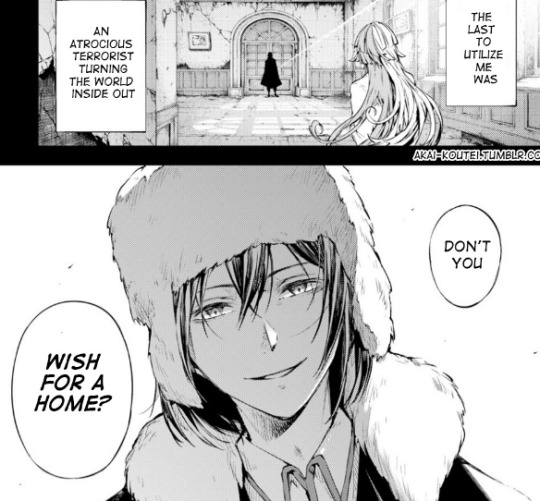
The last reincarnation depicted in the fourth book "The Decay of the Angel" deals heavily with themes of nihilism, and deeply resembles Dostoevsky. Especially if you believe Fyodor is in part an adaptation of Raskolnikov's theory that truly great people should be above morality as depicted in crime and punishment.
Toru's goal in the Decay of Angels, is to devote himself to a pure form of evil and get lost in the pursuit of it. He is depicted as a twenty year old exceptionally brilliant individual who does not form relationships, is detached from the society around them, has no strong pursuits except for this, and his highly nihilistic believes. The kind of nihilism that is portrayed for its flaws in many of Dostoevsky's works.
"My purity will presently wander beyond the horizon to that invisible realm. Probably not on the end of unbearable pain, I shall seek to become a god. The pain! I will know of it, the pain of absolute silence, a world of nothing at all. I will crouch in the corner, like a sick dog. And the happy ones will sing songs around me. There is no medicine for it. No hospital. It will be written in tiny gold letters somewhere in the history of the race: that I was evil."
Which mirrors the description of Fyodor in his introduction as something "Darker than evil, something horrifying."
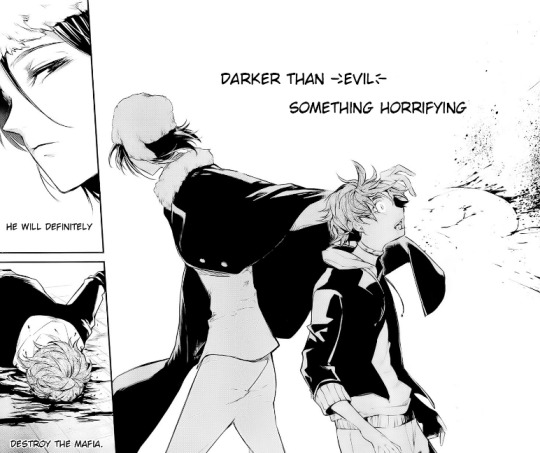
Fyodor is also someone with a large blind spot when it comes to ordinary people, this is something he is lectured on by Dazai. That he believes he has enough control like a player sitting outside of the gameboard that he can control the movment of every single piece. That the world is controlled by great people manipulating it. Whereas Dazai's beliefs are the world is controlled by everyone's actions moving together in an unpredictable fashion, rather than a god sitting outside manipulating things.

Toru receives a similar lecture because he bbelieves himself to be some kind of great man due only to his extra intelligence and how isolated he is from others.
"There is no special right to happiness and none to unhappinnes. There is no tragedy and there is no genius. Your confidence and your dreams are groundless. If there is on this earth something exceptional, special beauty or special evil, nature finds it out and uproots it. You thought didn't you, that you were a genius beyond compensation. You thought of yourself, didn't you, as a beautiful little cloud of evil floating over humanity."
The Decay of the Angel
Which seems to be the lesson that the story is going in the direction of teaching Fyodor, that there is no such thing as inherent specialness, exceptional people, gods or demons.
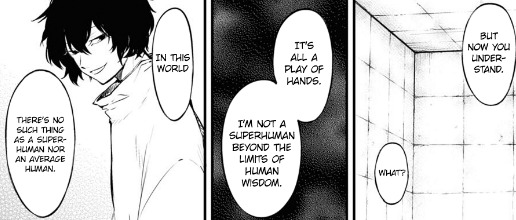
Fyodor is also someone who while he has no undergone a death himself, his goal is to deal death, which he seems to be able to do with just a touch of his hands, in order to make the world reborn into a “world without the evil of ability users”. Death, birth, and rebirth are themes that are strong with all five of these characters.
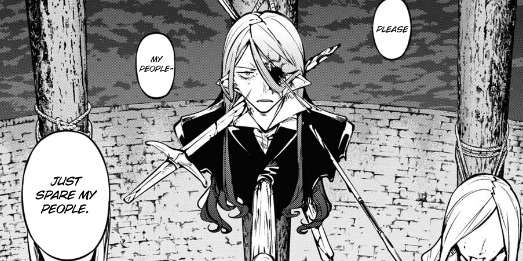
As for Bram he’s the character we know the least about, but I would say while Fyodor, Fukuchi, Gogol and Sigma can be equated to individual lifetimes of Kyoaki, Bram himself being an immortal vampire and oldest of the group is much like Honda who is an outsider and witnessing the lives of young people being reborn over and over again. Especially since by the fourth book he is eighty years old and essentially a helpless elder. The various lifetimes of Kiyoaki die young, he lives on a much emptier life than any of them. Bram’s just a head. He’s the most helpless of the whole group. He’s just a witness to all of this. But he’s also an immortal vampire, so therefore an outsider to the cycle of death and rebirth.
Well, that is all I have to say about “The Decay of the Angel” and the connection to the “Decay of Angels” depicted in Bungo Stray Dogs, and the five members who make it up. I fully reccomend picking up the book, just as Bungou Stray Dogs is shaping up to be anti-war in its text and the depiction of several successive generations (the war generation, the post war, the Sea of Fertility is a massive work referred to as “the most complete vision we have of Japan in the 20th Century” by Paul Theroux. It deals with similiar themes in BSD of the changes between generations, the shift in society of japan in the last century, the influence of imperialism. If you want to pick it up and read it, it comes highly recommended by me!
#bsd meta#bungou stray dogs meta#bungou stray dogs theory#bungou stray dogs#bungou stray dogs analysis#fyodor dostoevsky#bsd fyodor#nikolai gogol#bsd gogol#fukuchi ochi#sigma#literature analysis#the decay of angels#yukio mishima#decay of angels#doa
351 notes
·
View notes
Text
It is so fucking weird to me how quick people are to villainize Elwing when there is no textual reason to do so. It’s feels very obvious to me why they do it too, apart form just generally hating women, like y’all it’s ok to like the feanorians without doing backflips to justify their evil deeds. Or have people forgotten that Maedhros and maglor are not Elrond and elros’ real dads?? That they in fact kidnapped them and held them hostage? Very cool that love grew between them or whatever like I’m glad the twins weren’t mistreated but the attack on Sirion is widely regarded as the worst thing that the feanorians ever did. They drove the twins’ birth mother to suicide (even though the gods intervened or whatever) like Maedhros and maglor are the reason elwing wasn’t there to watch them grow up and y’all villainize her? When she kept the havens safe by herself as a young girl after her entire family was brutally murdered by the feanorians and I don’t want to hear any “well she should have given up the silmaril” I’m sorry, given it up to the mass murdering monsters of her childhood? Swear to god y’all will jump through hoops to hate a woman it’s almost impressive
127 notes
·
View notes
Text
TIME TO LOVE STEPHANIE BROWN aka SPOILER
She deserves JUSTICE!
Greek Goddesses! Another character that earned a love post from me, she needs the love, she DESERVES to be loved 💜💜💜 (spoiler alert, this post will be a loooooooooong 😅 )
I found out about her and other characters thanks to the wholesome slice of life comic Batman: family Wayne adventures months ago (I've been a DC Batman fan since I was a kid but I mostly watched shows that didn't include said characters before starting with the comics) and I fell in love with her, I mean she is all purple and her hero name is SPOILER 💘 so she could jump on criminals and say things like: SPOILER ALERT YOU'RE ABOUT TO GET BUSTED 👊😂 HELLO? INSTANT LOVE 💘and then I searched for her, read a lot of comics... and learned SOOO many outrageous things!🤬 Welcome to Hypocrisyland 🤦♀️🤦♀️🤦♀️. Here comes the RANT:
So she was an independent girl who made herself the Spoiler persona to "spoil" her wannabe Riddle father's evil deeds and she was a bit morally gray and cynical and wasn't particularly trying to be a hero or a vigilante and then after meeting Robin she started to change her mind inspired by HIM so all her thing started completely separated from Batman and technically it was by associating herself with Tim/Robin that at some point she started to want Batman's approval too and started the whole "fight to prove that I deserve a place here" thing but I think the amount of disrespect this girl faced is ridiculous! Treated like she was hopeless, useless, stupid etc... is she a punching bag? Treated like shit by so many characters for no good reason 😡 and I didn't see any satisfying consequence on them because of it, it was as if the way they treated her was justified because... I don't know, she was compared to Jason, to Dick, to Tim and to Barbara but when is only about her own person she wasn't good enough so they were hysterical about her hurting herself or dying faster than any of them 🙄, so everything is justified because they were worried?
Sorry but NO, I don't care if she isn't as skillful as characters like Cassandra or Damian that were raised to be living killing weapons by assassins or that she isn't intelligent genius detective level with a rich live background that could afford special ttraining like Tim or Batman himself, that she isn't some erudite engineer to build herself taser weapons like Harper Row or a suit flying armor like Luke Fox, that she doesn't have military training like Kate Kane, that she doesn't have hacker skills or a cop dad as Barbara Gordon, or she doesn't have powers like Duke or wasn't trained by ninjas like Selina Kyle or that she started only having good grades at gymnastics instead of having been raised in a circus by acrobats like Dick Grayson... I DON'T CARE, because she had a lot of qualities to start from Zero to Hero that are probably a lot more relatable than the other characters, most people don't have third rate criminal fathers but still she is a lot closer to the normal people than other characters and that makes her great, she is so resourceful even thought that unlike Batman and Tim she comes from poverty and can't get high tech stuff, yet she made herself a costume and helped take down her criminal father in a low budget! How come her resourceness in her situation wasn't impressive to them? How come that she had to endure being dismissed and underestimated constantly over and over until her death? It was exhausting to see! The fact that she started being resentful towards her father and wanted more revenge than justice is enough to ditch her as a hero? (Maybe the Avengers would have welcomed her better in that case 🙄) How much she had to train until the writers stopped making her look unfit and unworthy despite everything?
I don't get why they decided to make everyone around her be an asshole, a jerk, a hypocrite... Specially Tim and Batman (the AUDACITY of these two! Batman "fired" Her from being Spoiler like she being Spoiler had anything to do with him in the first place, entitlement much? Robin mantle I get it but The Spoiler mantle was hers from the beginning he can't fire her from it and then Tim went to comfort her, ironic since he kept telling her to hang the suit all the time, he also said being a Teen Titan was out her league when she was offered a place and told her she can't speak for herself, seriously you fucking jerk? Does he think he is Dick Grayson or what? 😒 the entitlement is spreading! and later when he became Red Robin he DEMANDED her to never be Spoiler again... Oh FUCK YOU 🖕🤬, mister "I discovered your secret so now you have to hire me as Robin" Worse part of that is that he said that after finding out things she was doing on Batman's orders wtf? So is bad always no matter if she disobeys or obeys Batman she can't win) They even made my dear Alfred be cold with at first because "she hurt Tim" but it was actually Batman's fault because he told her his secret 😤 well at least that treatment didn't last, bless Alfred for crying after her death when Dick asked about her and being so happy to see her alive he lose his British.
Why they hated her so much to the point they just doomed her to a horrible death that wasn't even heroic? She was tortured for days after provoking a gang war following one of Batman's plans trying to gain his trust back after he fired her from being his Robin for only 2 months! 🤬 2 miserable months!! because she disobeyed him (sure, sure, no other Robin BEFORE and AFTER her has ever disobeyed Bats orders right? 🙄) and the last person she sees before dying is him who was always comparing her to her male predecessors because he didn't like she was more questioning than them and then lied to her dying face about considering her a real Robin (by the way it felt so wrong that she became Robin out of spite because she saw a girl kissing Tim and she assumed he was cheating... I mean I can't blame her he did CHEAT on his first girlfriend with her, boy I hate this kind of teen drama) . They said it was "unclear" If he was telling the truth, HA! PLEASE. 🙄Of course he is not going to tell the ugly truth to a dying girl (he even "insulted" Her once saying she fights like a girl, wtf? She should have tell on him to Dinah lance) The ones who should have been there were Cassandra and Tim they actually did considered her a Robin, yep even Tim (he even mentioned a few positive things about her time being Robin) after he retook the mantle, they at least loved her! Even if they wronged her at least there was no doubt that they loved her... (Even if Tim's grief for her was short and too dry! 😡, They wanted people to forget about her so hard he was already having new love interests when not even a year passed, he suffered a lot more with his father and Superboy's death than with Stephanie 🤬, at least Cass cried and dreamed about her and thankfully Alfred and Barbara cried for her too even when they weren't that close to her at that time) Because seriously, this was a pitiful sad death, not bothering in making it a sacrifice or falling on combat saving someone noooo, she died after making a huge mistake trying to impress someone who never actually seemed to like her at all! In a gruesome and kinda sexualized way, nobody came to rescue her... Batman only showed up to pick her up after she escaped alone and tell her pretty lies before dying.
What a fucking Joke 🤦♀️ how humiliating for a character with a hell lot of potential WASTED! She didn't even get a memorial in the Batcave like Jason! Both their deaths were meant to be permanent but the comics only wanted you to remember Jason but not about Stephanie! Like he never existed! (And later the lame excuse for it🙄, like Batman suspected she wasn't really dead but he didn't tell Tim or Cass about that suspicion? None of them confronted him about the lack of memorial of her? Wouldn't they demand a memorial of a girl that meant a lot to them? He suspected she was alive but he never care to find her?🙄😑 Talk about crappy, tacky writing) it's like the character was thrown like garbage... Indeed that's what they intended to, her death was supposed to be permanent but fortunately for us fans rioted to demand her return very rightfully! 😤 and... Her return was still rushed, lame and lazy 😒 and they forgot to add a LOT of characters reactions seeing her alive 🤦♀️, like not even Cass??? I searched and never found a comic with her reaction after finding out she was alive! All out of camera, I hate that, is just so TACKY! Not an epic death and not proper comeback 😬😬
But then we had her run as the third Batgirl! Her solo as Batgirl did a lot of good for her character, with the exception of a few things I disliked like: her interaction with Catwoman that didn't make sense with how they met in the gangs war or that once again Batman has to have all the credit 🙄 because at the end he comes back from a not actual death and it turns out the whole make her a Batgirl was his doing and not Cassandra's doing😑 that would have been better because later they could rub it on his face but they couldn't because it was his idea 😬 but hey at least she got to SLAP him 🤣👏👏 that was epic BRAVO! Ahh that solo lasted too little! She got to put Tim in his place, she became friends with Supergirl and bonded with Damian as a big sister, I swear she should have spent more time with them, she demonstrated her bravery and willpower when she kicked the Scarecrow ass, finally earning Barbara's respect and admiration after she was so bitchy with her, its always so satisfying seeing characters standing up for her after so much mistreatment (i guess she had mixed feelings with the fact that Stephanie is a Batgirl that resembles more to her, Dick also mentioned that and thankfully he stopped being a jerk hypocrite with her too) and did I a mention that she FUCKING SLAPPED BATMAN? Because that is extremely important 😂 and Alfred defended her calling Bruce out in his bullshit test. Then for some stupid out of the blue reason she retired for a year... AFTER ALL SHE WENT THROUGH TO EARN THAT MANTLE? 🤬🤬🤬. Anyway she had to take the mantle back because she was chosen for some tournament where she had to fight Catman and there was Tim again looking down on her 🙄 "why weren't we chosen Cass we are better fighters she is a year out of shape" (Yeah who the fuck decided to make her hang the cape after everything? 🤡) at least Cass defended her saying that she is unpredictable, not like when they were training (Steph was still death) and out of the blue she unnecessarily tells him "you learn fast not like my last student" Really? I recall you enjoying training her 🙄 Sure Cassandra cried and dreamed of her but she used to look down on her a lot, the way she knocked her out in after being fired from being Robin was something we never see her apologize for, it was swept under the rug like never happened, Steph never confronted her about it even though she left her feeling betrayed 🤦♀️ and then besties again like nothing 😒. But at least she punched Tim for being an imbecile and then they got together again, so lovely, so happy, she was finally getting respect... BOOM: the new 52 reboot happened. 😃😃
The only thing I liked was that she got triple nunchakus as a personal weapon and that way she doesn't copy Robin's stick and the fact that she went through teen pregnancy and had to give up the baby because I hated that lazy plot that was only meant to make her and Tim have a closer relationship is not canon anymore(they really couldn't think of anything else to deepen their relationship than making her go through that pain so he could support her?😒🤦♀️ besides, she had a traumatic sexual assault experience as a child so I find hard to believe she would let herself get pregnant with the scumbag she dated before Tim, I hard to believe she didn't dumped him until he abandoned her in the earthquake) but her origin and relationship with Tim was erased along her time as Robin and as Batgirl(even thought that somehow thankfully now is canon again)and other character named Harper basically took a bit of Steph and Cassandra stories, mixed them and made them her own... pretty lame because Harper's concept was actually cool but she taking their place wasn't cool she also was the one to befriend Cassandra and had a conection with her first instead of Steph and the one who had to fight to be allowed to be a vigilante by Batman instead of her and she was the one that convinced Steph to join the fight instead of Steph wanting to do it by herself but the thing that infuriates me the most in this reboot was that she was accepted into the batfamily without much problem but altmost inmidiatly they made her go against them and againts Batman that this time wasn't being an asshole to her due to the apparent death of Tim Drake, Batman was even being affectionate with her, that hug he gave her to comfort her was precious 🥺 and so satisfying to see but then they had to ruin everything by making her be unreasonable and insufferable to create cheap drama 🤦♀️, now that she got the only thing she wanted pre reboot they make her want to walk away?🤡🤡🤡 not to mention I was already pissed of that in her solo as Batgirl they forgot what kind of interaction she had with Catwoman, basically Selina was the last person who was sweet and kind to her before she was killed, it would have been nice to see a proper reaction to her come back but the reboot made things worse! Selina was bitchy and mean to Steph even if she gave her some acknowledgement to her talent but she refused to grant my wish of training her and instead she was trained by the second Catwoman that honesty was disappointed but not that bad because I will like any character that would want to help Steph and Eiko (2° Catwoman) took her in for a while and bothered to teach her something so KUDOS 👍 for her! And Cassandra, Dinah and Barbara too.
And well I'm going to stop the rant here because aside of Tim dumping her and treating her shitty for no reason when they were finally happy so he could be with a random background NPC boy nobody cared about or even remembered so he could prove his bisexuality 😑😑😑, in general things are finally getting good for her: she is finally fully recognized as a Robin and she got another solo with Cassandra and Barbara as Batgirls that wasn't as good as the first one but it was nice and apparently she is now going to have her own team of young superheroes in a new comic.
I wanted to make an statement about things I like about her, the need to make her interact with other characters I think she would get along and my new Ship with her and Jason but all that will have their owns individual posts because I already wrote too much here, if you read it all thank you so much 🙏🙏🙏❤❤ if you felt offended or disagreed with something I said I apologize but remember that this is just the random opinion of a random Tumblr user so... See you in my next posts 😘💋💋
STEPHANIE BROWN DESERVES LOVE AND JUSTICE 💪💜
#dc comics#dcu#dc universe#stephanie brown#the spoiler#batman#batfam#timsteph#jaysteph#dc spoiler#robin#batgirl
29 notes
·
View notes
Text
But no; that’s not the way it is! To do evil a human being must first of all believe that what he’s doing is good, or else that it’s a well-considered act in conformity with natural law.
|
Fortunately, it is in the nature of the human being to seek a justification for his actions.
|
Macbeth’s self-justifications were feeble—and his conscience devoured him. Yes, even Iago was a little lamb too. The imagination and the spiritual strength of Shakespeare’s evildoers stopped short at a dozen corpses. Because they had no ideology.
|
Ideology—that is what gives evildoing its long-sought justification and gives the evildoer the necessary steadfastness and determination.
|
That is the social theory which helps to make his acts seem good instead of bad in his own and others’ eyes, so that he won’t hear reproaches and curses but will receive praise and honors.
|
That was how the agents of the Inquisition fortified their wills: by invoking Christianity; the conquerors of foreign lands, by extolling the grandeur of their Motherland; the colonizers, by civilization; the Nazis, by race; and the Jacobins (early and late), by equality, brotherhood, and the happiness of future generations.
|
Thanks to ideology, the twentieth century was fated to experience evildoing on a scale calculated in the millions. This cannot be denied, nor passed over, nor suppressed.
|
How, then, do we dare insist that evildoers do not exist? And who was it that destroyed these millions?
|
Without evildoers there would have been no Archipelago.
|
Solzhenitsyn, Aleksandr. The Gulag Archipelago [Volume 1]: An Experiment in Literary Investigation (pp. 173-174)
#the truth#ideology leaves no room for reason#justifying evil deeds#appeasing the collective to survive and living the lie as a form of self-preservation#tyranny feeds on lies#justification is to convince ones own conscience that what he is doing is right when it is wrong#hitler did this when he justified anti-semitism in Mein Kampf#tyranny's fall when the truth comes out and the collective experience the domino effect#the truth will set you free#equal opportunity is better for society#judgement is permanent condemnation where second chances come from redemption#a person who fully believes that their way is the way or no way is an ideologue and have made up their minds#abandon ideology#jordan peterson#rule 7#12 rules for life: an antidote to chaos
1 note
·
View note
Note
Something I dislike about Chloe’s damnation is how her good actions never have that “selfish” part of them
My main examples is Zombisue and Queen wasp
She sacrificed herself to save ladybug and apologizes at the end, saving ladybug is selfless since she genuinely trusts ladybug will save them all (LIKE CHAT NOIR DOES, she’s doing the same chat does and is meant to and she doesn’t gain anything from apologizing since she already looks good in ladybug’s eyes for saving her
And in queen wasp she knows she’ll won’t be getting the miraculous back but she gives it up because of her devotion to ladybug
If the writers wanted to make her seem evil and selfish they would have given her something to gain out of this situations like money or fame, not the sympathy of her idol, is like the writers don’t know how to make actions have a selfish intentions to them and it shows with Marinette
Marinette has done this multiple times (for example she goes to Shanghai under the excuse of following Adrien which is extremely selfish) and the writers never seem to notice
I once read a fanfic called “bad for business” about a side villain of a show (which show ain’t important) not joining the main villains which invade he’s territory and basically plan to destroy the whole place.
The villain constantly makes deals and promises with selfish goals knowing full well most of he’s Allie’s might end up weakened, in Jail or dead at the end, and everything he does is selfish even if they aren’t flat out evil (I will help them in this turf war so they will help ME in this turf war, I will give them valuable information so they will destroy our mutual enemies for ME, I will kill this terrorist so I can frame it for the murder of another goon I murdered)
And the fan fic makes this clear every single scene, he does have good traits like caring for he’s partner and trying (emphasis on trying) to console a girl (which would have been he’s enemy in the canon show) after the two think a friend of hers died in front of their eyes but even till the end it’s shown how he’s never done a single selfless thing in the whole history and that’s why despite everything he did on the fic and what he wanted to achieve and by the means he did, he still rooted for him, because he was evil and nothing was hiding it (specially not the writer)
Meanwhile miraculous doesn’t know the difference between a selfish and selfless action, a fanfic does something better than miraculous, a fanfic of a series far worse than miraculous is more aware of good and evil than a children’s show
God I love ranting about miraculous mistakes and double standards
I feel like the writers have no idea what an anti-hero is, because characters are either completely perfect and can do no wrong, or they're complete monsters who are pure evil.
The show tries to write characters like Chloe, Gabriel, and Felix in a morally gray light, yet the writers always try to either downplay their actions or act like they've been good from the start.
The whole point of writing an anti-hero is that it allows you to explore stories in a way that differ from the usual moral paragons people are used to seeing in superhero media. These kind of characters usually find ways to accomplish their goals that don't allign with the beliefs we have. It makes us think about whether the ends justify the means, or how thin is the line between being a hero and being a villain.
But this show doesn't do that sort of thing. When a character does something, it's either good or bad, no matter the consequences it has. I'm not saying we need complex writing on the same level as Breaking Bad for this show, but if they're going to try and discuss topics like redemption for past deeds, you need to draw a line and show what kind of things are okay to do, what things aren't okay to do, and why actions are viewed in a certain way.
#immaturity of thomas astruc#iota#miraculous ladybug#miraculous ladybug salt#marinette dupain cheng#ladybug#chloe bourgeois#queen bee#queen b#gabriel agreste#hawkmoth#hawk moth#monarch#felix graham de vanily#argos
48 notes
·
View notes
Text
People need to realize the label "terrorist" is, more often than not, a political label. When you point this out, people often accuse you of terrorism apologia, but it's actually quite the opposite.
If we were to- say- define a "terrorist group" as "a non-governmental organization that violently targets civilian populations as a tactic to score political points, often relying on 'propaganda by deed,'" many more people and groups would be included under this definition. It would rightfully exclude the Ukrainian military as it engages directly with the Russian military, in direct contrast to Russia's rhetoric, while it would rightfully include groups like the KKK, which has been excluded from official terrorist organization lists.
It is not a perfect definition, but it is one of many working definitions proposed to counteract current political labeling. Current political definitions and usage often result in organizations like the PLO being included on the list for a year before the US government waived it or non-violent protesters in Georgia, USA, being hit with the label. It also leaves out several groups of violent extremists, providing them with more of an air of legitimacy and more discretion in their operations than those groups with the label.
Labeling a group as a "terrorist" group often legally allows a government, like the US government, to heavily surveil the group's members, freeze group and member assets, imprison group members, and engage with the group militarily. The label also often serves to justify any treatment of group members under a government's authority, like denying them due process. Some will argue it is a necessary evil. Others will point out how many men have been released from places like Guantanamo without charge. Or how the US "No-Fly" list appears to racially profile people and primarily target Muslims.
As long as labeling a group "terrorist" allows a government to legally circumvent certain rights, like that of a free and speedy trial, it will be used politically and ideologically, often against civilian separatists and opposition to the state, as we see in Georgia's Stop Cop City protests. But the US is not the only country that does this. Nor is it the only country primarily focusing on Islamic Extremism to the detriment of National security and democracy.
"Terrorism" is the pretext, but involvement in "terror"-related occupation has objectives other than stamping out terrorism. Just as there are socio-political gains in labeling common Georgian protesters as "terrorists," there are geo-political gains in the primary focus on Islamic fundamentalism and violence, like an unwavering international gaze on the Islamic world and multiple different military occupations in the Islamic world. If people's gut assumption is that Muslim = terrorist, they won't think twice about something like US military strategies in the Islamic world. It has led to 30% of Republicans and 19% of Democrats supporting things like the bombing of the fictional nation of Agrabah in polls. It has also led to US militarized counterterrorism in 85 countries worldwide with limited Congressional oversight and next to no public knowledge.
When I point this out, most people like to straw-man my argument to assume my goal is to let listed terrorist organizations prance around and kill people indiscriminately. The goal is not the absence of justice, but strengthening protections for the accused so a label is not an automatic guilty sentence. No government or military should simply be able to invade another to play judge, jury, and executioner on the people of that country. Morally. They also shouldn't be able to justify suspending due process for anyone. It sets a precedent.
Additionally, the goal is not to let a terrorist organization operate without impunity, but to admit that the "War on Terror" was a failure, in large part due to its violent and indiscriminate strategies. That is the second thing people need to realize.
This theoretical war against this nebulous force has been nasty, brutish, and long. It has also been ineffective. The "War on Terror" has only contributed to more violence and extremism worldwide. In fact, terror-related incidents have increased fivefold worldwide since 2001. The number of existing terror groups is at the highest level since 1980, and they've seen their numbers swell. And they have become increasingly transnational.
We've learned that it is impossible to win any terror-related "conflict" without destabilizing a nation or region. It is impossible to win any terror-related "conflict" without inflicting a tremendous number of civilian casualties, especially due to modern governments' aggressive military strategies. It is also impossible to win. Period. You cannot defeat terrorism. An organization, sure (although only about 7% of terror organizations have been quelled by military action). Terrorism itself? No. Mostly due to the diversity, scope, and decentralization of the threat. It is simply not possible to eliminate armed terror groups through the use of force and armies. It's quite literally counterintuitive.
The Hot War on Terror replaced the Cold War on Communism. And leading powers in the Global North are repeating the same failed tactics they used between 1950-1990. An overemphasis on military force to achieve state goals (most terror planning *does not* take place in a dedicated physical location, which military force primarily addresses). Neglecting non-military instruments of statecraft (terrorism is a tactic, not an ideology, so you can't "war" against a tactic). Focusing so narrowly on military action, you practically ignore other foreign-policy goals (like economic and political stability, anti-corruption, and nation-building because terrorist groups thrive in instability and disaffection). Creating the state's enemies of the future (see: arming Afghan rebels to fight the Soviets). And disowning and contradicting their country's own stated moral values to achieve its goals abroad.
Declaring war on terror is nothing short of a forever war. It ends only when counterterrorism measures stretch governments so thin they collapse.
92 notes
·
View notes
Text
Chain Gang All-Stars
Great book.

I sort of hope Chain Gang All-Stars is never adapted into a show or movie. It’s certainly possible that it could be done with proper deference to the tone and message of the book, but I think it’s far more likely that it would end up essentially being what Chain Gang is in the story itself - a hyper-violent spectacle that people tune into because they think it’s cool and action-packed. I think Chain Gang All-Stars is very successful at walking the tightrope line of drawing the reader into the story and letting them flirt with what it must feel like to be a viewer of the program, while presenting enough reminders of its grim reality to prevent you from being totally sucked in. While there were times during the LinkLyfe segments where I was drawn in the way a viewer absorbed in a reality show would be, the battles themselves never give in to ‘just’ being badass. They were tense, certainly, and I was on pins & needles reading them, worried about the characters, but there’s a certain utilitarian brutality to the writing in those sections that keeps them grounded. I’d be worried any adaptation would make everything too stylish and exciting, thoroughly missing the point*.
*To say nothing of any potential dilution of the politics to appeal to a wider audience.
—
“All other sport was just a metaphor for this.”
—
Chain Gang All-Stars is incredibly good at giving every single character a depth and fullness, even ‘antagonists’, so that even the characters who infuriate us, we understand to a degree. The book doesn't justify evil deeds - there’s no excusing Wil’s dumb ass self - but it shows how easy it is for someone to placate themselves, to keep themselves on a surface level and not dig too deep into their own morality, to convince themselves that they’ve done what they could and that all those who have wrong done to them deserve what they get. The fluid perspective switches it accomplishes this with are fascinating, too. We get chapters dedicated to different characters, of course, be it our leads, our deuteragonists, and plenty of one-off side stories - standard stuff. But Adjei-Brenyah also rapidly switches between multiple perspectives within the same page, hell, the same paragraph at times, which gives us insight into a much wider breadth of viewpoints than we normally would.
By getting to see into the inner thoughts of quite a few Links, we get to see how, while their individual experiences are different, their imprisonment has broken them all in tragically similar ways. From Bishop to Sunset to Thurwar to Staxxx, we see a consistent, crippling lack of self-worth. The A-Hamm chain is unique in preaching a vision of solidarity, accepting one’s past mistakes, and focusing on how they’ve grown and changed as people. Despite this, at their core, none of them can truly find it in themselves to be forgiven, because Chain Gang grinds their lack of perceived value into them unceasingly - ultimately resulting in what is essentially suicide. The carceral system does not allow for or encourage rehabilitation, only suffering and self-hatred.
I thought it was a compelling decision to make the majority of the imprisoned characters we follow legitimate violent offenders. A lot of the abolitionist / prison-critical literature I’ve read often focuses on, or at least begins with, incarceration that is plainly, nakedly unjust, like long-serving non-violent offenders and mandatory minimum sentencing. Conversations about the treatment of murderers, rapists, etc., are naturally more fraught - it’s harder to get someone to imagine an entirely different system, rather than just adjustments to the current system.
Chain Gang All-Stars does not shy away from it one bit. We get self-reflection from multiple different Links, both those who regret what they’ve done and those who don’t; we get conflicted thoughts from family members who recognize that their lives have been fundamentally changed by the imprisonment of their kin, but are still ambivalent about forgiveness; and we get, of course, the fearmongering and appeals to pathos used by government and the media to try and stop any ideas of abolition from even beginning to take root in the minds of the public. The book understands that there’s no easy answers, and instead brings all of these perspectives to the reader, demanding they grapple with the issues themselves.
It does, however, make clear the absurdity of pretending that taking someone whose life has been indelibly touched by violence and putting them into a system that encourages and requires additional violence, by the state, by their peers, is somehow rehabilitation. It’s brought to an extreme in the novel, of course - Thurwar’s overriding instinct that every problem can potentially be solved by violence due to the constant killing she’s done is more reminiscent of a soldier returning to peacetime than anything else - but the message stands.
Some of the most powerful parallels shine through as-is, though. Even when you put aside the horror the Links are put through on a daily basis and the rampant normalization of state-sanctioned violence, the base lack of freedom and personal autonomy is what breaks people. Both during Chain Gang and our looks at other prisons, the regimented days, planned schedule, and inability to spend time or talk with the people they care about are basic human rights that are removed from prisoners every day. Hendrix’s silent prison (an idea I was horrified to find has been enacted before) shows this in one extreme - after being robbed of something as simple as his own voice for so long, Hendrix is willing to risk everything just to be able to reclaim that part of himself.
Most heartbreakingly, the morning of the final doubles match, Thurwar’s only desire is to stay in bed longer with Staxxx. Leisure time with your loved ones, one of the most basic luxuries a person ought to have, seen as an unobtainable prize. Don’t need a dystopian near-future novel to see that happening.
Speaking of Hendrix Young, the voice Adjei-Brenyah uses for his sections was absolutely beautiful and oozing with character and I loved it. The way he speaks is simultaneously poetic yet so pragmatic - there’s an idiosyncratic turn of phrase in nearly every paragraph, and his love for the world and its beauty is never eclipsed by his cynicism and the horrible things happening around him. His sections were handily my favorites, despite the looming dramatic irony that overshadows them all.
—
“I thought of how the world can be anything and how sad it is that it’s this.”
—
As a literary device, the interspersing of worldbuilding notes and Actual Fucked-Up Prison Facts was a genius touch. By priming your brain to expect something more fantastical, the more grounded notes become something of a sucker punch. The first few are all in-universe lore explanations - they’re not entirely necessary, you could’ve pretty much got the gist through context, but the thorough explanation written almost as an ad read pulls you into the mentality of this world… so then, when it drops, say, the net worth and founding members of the Corrections Corporation of America and you get the inkling that this tidbit feels a little too specific to be made up, the lines between the book’s world and our own start to blur.
In addition to the unique cognitive dissonance it invokes, I think it’s a pretty effective strategy to convince or teach a reader who perhaps hasn’t done as much digging about the nightmare that is the American prison-industrial complex. Especially given that the main conceit of the book is a little outlandish, it’s very easy for me to imagine such a reader enjoying the story for its plot, but deflecting or doubting the themes with the classic “Oh, but this is an exaggeration - it would never happen like this! It would never be that sadistic”. In some way, the footnotes feel like the author directly responding with a “Yes, it would, and in fact has already happened this way previously”.
I do wish the footnotes stayed as dense throughout the entire book as they were at the start. In the beginning, they come hard and fast, blending the real and the fictional, keeping the reader on their toes. About a third of the way through, though, they slow to a trickle, becoming a rarity. Adjei-Brenyah keeps experimenting with what the footnotes can convey (“Don’t look down. Help me.” was particularly chilling), but the infrequency starts to make them feel like an afterthought.
—
“Just jump.”
—
The closer I got to the end of Chain Gang All-Stars, as fewer and fewer pages remained, I was increasingly desperate for something to break. Even as the story continued towards the inevitable, even as it showed me there could be no other way for things to go, I hoped for something else. Anything but what happened.
And yet… the ending gives this book’s message a lot of its power. It’s not a story where things always work out and the good guys always win - it’s a reflection of real problems, and those real problems don’t have such a simple solution. Chain Gang All-Stars is about people living in an unfair world, working within a cruel, unjust, system, and still finding the strength and conviction to believe that there can be positive change. It’s about knowing that progress can be slow, and that the system can feel daunting, and feeling powerless to enact change, and still imagining and pushing for the world to be better anyway. And somehow, that it faces that hopelessness head-on makes it more uplifting than a safer story with an easier ending.
#will's media thoughts / virtual brain repository#books#chain gang all stars#just for the sake of the journal i'll add#that reading this after rewatching the hunger games#only lowered my esteem of them even further lol
27 notes
·
View notes
Note
Is it me or did Luz turn into a bit of a Mary Sue in Watching and Dreaming? From her befriending the Collector and showing him the error of his ways, dying and immediately coming back to life by King’s dad, being the only one to meet King’s dad while also getting a power up, then saving the day and getting pretty much everything she ever dreamed of all in the span of one episode.
I wouldn't say Mary Sue because a hallmark of that trope is that the character is naturally good at everything and literally has no flaws. That's not Luz.
However, it does seem like they leaned into the Chosen One trope after criticizing it in season one; part of Luz's character growth is that she had to learn that she was not in a fantasy story, that actions had consequences and she shouldn't try to act like the hero in one of her children's books.
Then she literally gets to live out her fantasy from the first episode by becoming a witch and defeating the evil demon plaguing the land. Now, some will argue that she earned this because she learned to respect the island, which is why the Titan showed her the glyphs and hid them from Philip. But I feel like this is having your cake and eating it, too? Before the lesson was, no one is going to hand you anything, you have to work hard to achieve your goals. Except that the world literally did hand her everything she needed because of her basic goodness.
Luz was never a bad person; she just needed a reality check and to mature. She's still fundamentally the same person from season one and she is rewarded for it. Which honestly, wouldn't be so bad if the show hadn't spent time hammering in the theme that you can't just sit around waiting for destiny to call you to be the hero and then reward you for doing good deeds. The show also made a clear point that Luz needed to separate her fantasies from reality and she ends up getting exactly what she wanted in the first episode.
So basically, Luz is the Chosen One but by necessity because the world is going to be destroyed by the One True Evil. Groundbreaking.
Also, the Titan giving the glyphs to Luz ironically justifies Philip's paranoia in King's Tide; in that episode, he compliments Luz's proficiency with glyphs and that it had taken him years to find all of them, "Almost as if the Titan was keeping it from me." We're supposed to infer that since Luz respected the isles and listened to them, she was able to discover the glyphs while Philip only abused and exploited it. And since he's paranoid with a persecution complex, he blames his slow progress not on his actions but to a higher being. Turns out he was right!
I dunno, seems like a poor writing choice to make your main character the Chosen One after criticizing the trope and then accidentally justifying your villain in the process.
136 notes
·
View notes
Text
Reading Agamemnon (the Oresteia) right now and I want to reaffirm the totally ground-breaking (not) idea that the following two sentences :
Klytemnestra is an anti-heroine (meaning that she is evil but she has her reasons for being so)
Klytemnestra is gatekeep, gaslight, girlboss, girlfailure etc.
are not, in fact, the same sentences. These are different sentences, and the difference is huge.
It is not ground-breaking to say so, it has been said before, but it is still quite important. Like I get the need to be funny and approach the ancient greek literature with some humor in order to make it "relatable", whatever, and I may do it too so I don't wanna be this no fun allowed person BUT I do believe that you can still be humorous and edgy about tragedy while making sure you have a correct interpretation of it. Klytemnestra is, in fact, evil. She is not misunderstood, she is not justified. She is evil, and it is pure and simple. She has reasons for being so, yes, but irregardless of her reasons she remains substantially evil. I will even go the extra mile and affirm that she is evil even by modern moral standards let alone by ancient greek moral standards.
Another not ground-breaking but important note. The following three questions :
Is Klytemnestra justified for her actions?
Is Orestes justified for killing her?
Should Orestes be acquitted of his crime?
are in fact, entirely different questions. The answer to each question does not give you an answer to the following question. It doesn't work that way :
Klytemnestra is not justified for her actions, which are evil, like she is.
Orestes is not justified for killing his mother, this is an unforgivable crime, an evil deed.
Orestes should be acquitted of his crime.
The core idea inspiring these answers is to be found in the text : it is the main difference between vengeance and justice. In order to break the generational cycle of evil deeds inspired by vengeance, the gods interfere with a firm but clement hand to settle the affair, by justice.
What Orestes did was unforgivable. Orestes is forgiven.
What a truly spectacular specimen of human genius this tragedy is.
35 notes
·
View notes